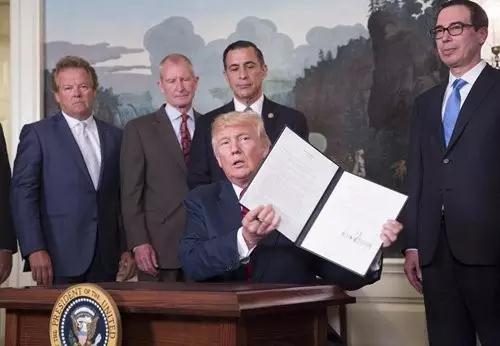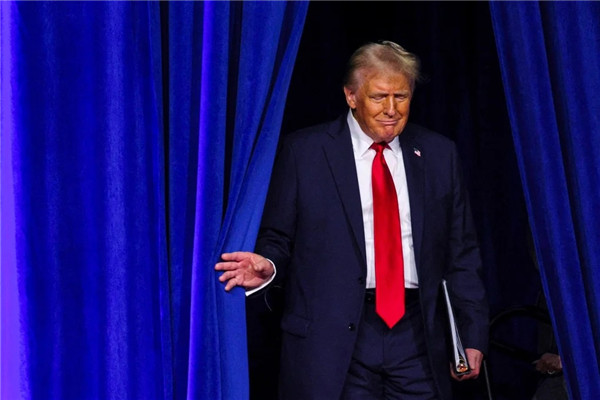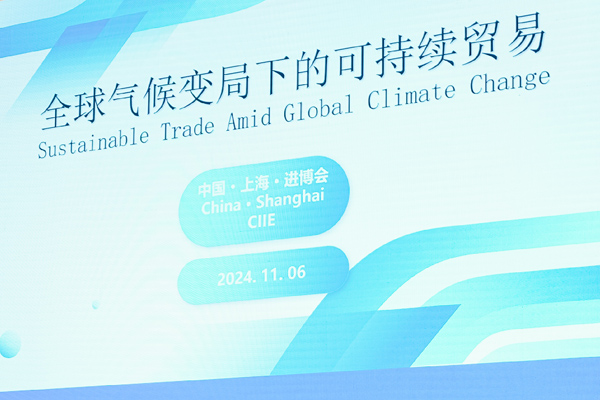【Global Times】US probe won’t spark trade war: experts
August 20 , 2017Move seen as attempt to address deficit with China

US President Donald Trump holds up the executive order he signed authorizing the US trade representative to launch an investigation against China on August 14 in Washington DC. Photo: CFP
The US decision to launch a Section 301 investigation against China over trade has renewed concerns that a trade war might break out between the world’s two largest economies, but Chinese experts on Sunday played down the scenario.
However, following the US move, which is aimed at addressing the trade imbalance with China, the bilateral trade relationship will face rising hurdles and China should be fully prepared to face more trade remedies from the US in the future, experts warned.
US Trade Representative Robert Lighthizer on Friday formally initiated an investigation into China’s intellectual property practices under Section 301 of the Trade Act of 1974.
The probe comes after US President Donald Trump on Tuesday signed an executive memorandum authorizing Lighthizer to determine whether China’s practices harm US intellectual property rights, innovation or technological development.
“The investigation will seek to determine whether acts, policies, and practices of the government of China related to technology transfer, intellectual property, and innovation are unreasonable or discriminatory and burden or restrict US commerce,” the Office of the United States Trade Representative said in a statement on its website.
Real motive
Though the probe centers on the issues of technological intellectual property, Chinese experts said the US is using it to pressure China into tackling the bilateral trade imbalance.
“The US investigation is primarily aimed at addressing the country’s long-running trade deficit with China. The US hopes to impose pressure on China in order to protect its own manufacturing industry and improve American employment,” Wang Jun, a deputy director of the Department of Information at the China Center for International Economic Exchanges, told the Global Times Sunday.
China’s trade surplus with the US reached $25.2 billion in July, official data showed on August 8.
Another motive behind the move could be that the Trump administration is seeking to draw attention away from domestic US problems by focusing on China, said He Weiwen, a senior fellow at Center for China and Globalization (CCG)and an executive council member at the China Society for the WTO.
The Trump administration wants to use China as a “scapegoat” as the US government has “made enemies” domestically as well as globally following various controversial policies and the decision to abandon the Paris Agreement on climate change, He told the Global Times Sunday.
“To make China a scapegoat is easy. It’s not only Trump who has done this; other US politicians have also tried it in previous years,” according to He. “The investigation has been long plotted by the US government,” he said.
Trade war unlikely
Experts said that the US probe is unlikely to trigger a full-blown trade war between the two countries and will not have a substantial negative impact on the bilateral economic and trade relationship in the short term, but it is still a worrying sign.
“Trade disputes between China and the US will rise in the future and the US is likely to employ more forms of measures against China [in trade],” Wang noted.
The US launched 11 trade remedy probes into Chinese products in the first half of this year, accounting for about 30 percent of the total investigations that China faced from around the world, according to China’s Ministry of Commerce (MOFCOM).
China should be fully prepared for the effects of the US probe, not only in trade, but also in terms of pressure on the currency exchange rate, He said.
Wang noted that China would like to use negotiations to resolve such problems instead of launching harsh trade restrictions against the US. “China will not ban imports from the US nor raise tariffs on US products.”
Also, He suggested, China could use WTO rules to seek arbitration because the US move to apply a domestic law to an international matter violates the WTO’s rules.
Section 301, which was passed in 1974, allows the US president to impose tariffs or other trade restrictions against foreign countries. But it also represents unilateral action and is generally opposed by other countries, MOFCOM said Tuesday.






